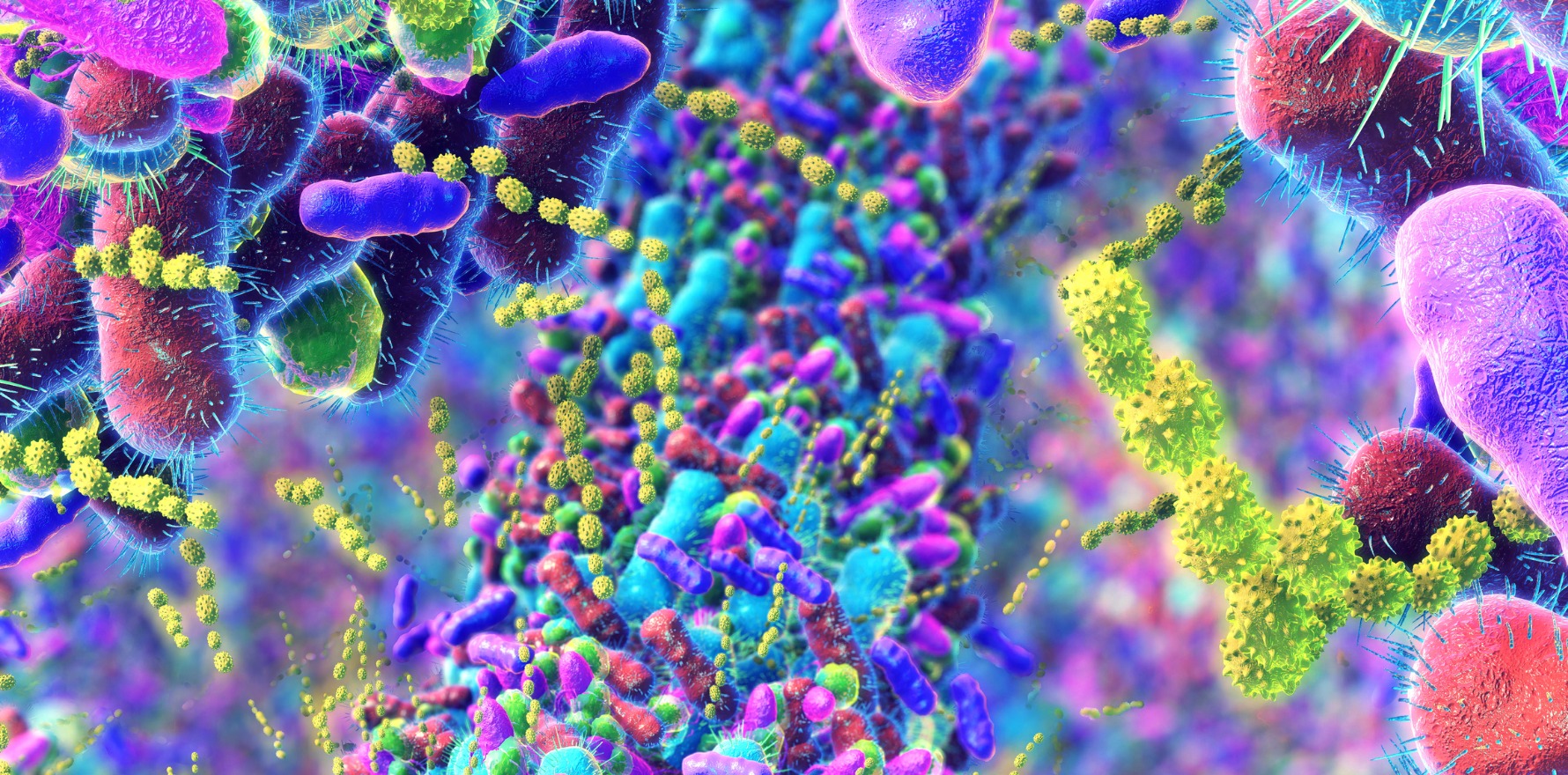Disruptions to the microbiome could blunt the power of checkpoint inhibitors, but researchers say ‘good bugs’ might one day tip the balance back in patients’ favour.
The complex interplay between antibiotics, gut microbiota and immune-modulating drugs in cancer treatment have been the focus of several studies for nearly a decade.
It appears that antibiotics can disrupt gut microbiota diversity, which influences how well patients respond to immune checkpoint inhibitors and other immunotherapies, say researchers.
Dr Miles Andrews, consultant medical oncologist and head of Immuno-oncology at The Alfred, and research fellow at Monash University explains.
“There have been some studies on the exposure to antibiotics in the 30 to 90 days prior to starting immune checkpoint inhibitor therapy for cancer,” he told Oncology Republic.
“And there’s certainly a suggestion that antibiotic exposure is associated with an inferior overall survival across a range of epithelial cancers, for example, kidney and lung cancer, as well as melanoma.”
Several translational research models and pre-clinical models, mainly mice models of cancer, suggest that antibiotic exposure, presumably by altering the gut microbiome, has this negative effect on response to immune checkpoint blockade in cancer.
“We do need to be increasingly thoughtful about when antibiotics are really needed,” said Dr Andrews.
“In the cancer population, for example, a patient with lung cancer, who has a bad chest infection, like a full-blown pneumonia, will absolutely need antibiotics, as opposed to a patient with a mild viral upper respiratory tract infection, in whom antibiotics could likely be avoided.
“In the real world, we have to treat what the patient has now, rather than being overly worried about what might happen down the track. If the patient needs antibiotics, we’re going to give them antibiotics, even if we know that they are planned to receive an immunotherapy for their cancer in the near future.”
It is known that antibiotics can disrupt gut microbiota diversity. At the same time, experimental approaches are aiming to harness specific bacteria or their by-products to boost immune responses against tumours to broaden the reach of immune checkpoint inhibitor drugs, which work only in a fraction of patients and don’t extend to all tumours.
In a recent study from Japan, published in Nature, researchers found a new strain of the microbe Hominenteromicrobium mulieris in the human gut that could boost the effects of some cancer immunotherapy drugs in mice.
They found H. mulieris to be more effective in supercharging responses to checkpoint inhibitors than strains of microbes revealed in previous research.
Current evidence from clinical and preclinical studies on microbiome-based interventions, including faecal microbiota transplantation, bacterial metabolites and probiotic therapies, is showing promise for clinical application.
Correlative clinical and pre-clinical mechanistic studies have opened up the possibility for therapeutic application of microbiome science, but Dr Andrews noted that there was still work to be done before they had very firm answers and recommendations for the clinical relevance of gut microbes.
“It’s really a matter of working out which ones we want to harness and which ones we want to suppress because it goes both ways,” he said.
“There are microbial influences that kind of untrain or basically teach a bad lesson to the immune system in the gut, which translates into the tumour and can lead to inferior outcomes.”
In his view, dietary modification was probably the simplest, most durable and universally most implementable for changing the microbiome in a concerted way for a therapeutic benefit. There’s also a lot of interest in developing specific microbiome-based pill/capsule to supplement so-called “good” microbes or favourable chemicals that they produce.
So, will these “good bugs” become part of standard cancer care in the future?
“I think so. We have compelling data about the role of the microbiome, particularly in cancer immunotherapy,” said Dr Andrews.
“In fact, the whole space of non-pharmacotherapies, for example diet and exercise, is really starting to hit big time. They appear to have effects that are real and quite substantial. It is a matter of overcoming that initial cognitive reluctance to accept this as real therapy and understand it more scientifically.”
Challenges remain in translating microbiome science into standard cancer treatment as the available data highlights that there’s no one magic bullet microbiome that does everything across different types of cancer.
“They’ve been studied primarily in Europe, the US and in Japan, and they’re all finding slightly different bugs. It just means that there are other differences based on population, geographical region, cultural and dietary factors,” said Dr Andrews.
“So, there are going to be lots of different microbial associations that we need to learn how to tweak.”
Researchers in this space are hopeful that further clinical trials will help unravel the mystery of the precise mechanisms of how microbes might interact with immune therapeutics.


